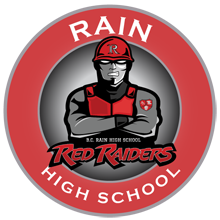Information Technology - Business Management and Marketing
The Information Technology curriculum addresses the development of applied skills focusing on types of work environments students may encounter in this pathway. An active, structured, and stimulating classroom setting is provided for student exploration and assessment. Students who choose to complete a pathway in the Information Technology cluster enjoy technical, challenging curricula and attention to detail in daily work tasks.

Course Sequence
10th Grade: Business Technology Applications I
This course is designed to assist students in developing technological proficiencies in word processing, spreadsheets, databases, presentations, communications, Internet use, ethics, and careers using technology applications. Simulations and projects promoting teamwork, leadership, and workplace skills offer further opportunities for applications of knowledge and skills.
11th Grade: Business Communications
This course is designed to provide students with the project-based applications of concepts learned in Business Technology Applications or Business Essentials.
12th Grade: Foundations of Business Leadership
This course is designed to provide students with the project-based applications of concepts learned in Business Technology Applications or Business Essentials. Personal computing and business skills are integrated throughout the course as students use a variety of software applications.
Marketing
Marketing Principles
Digital Marketing
Sports and Entertainment Marketing
Students will develop skills in the areas of merchandising, advertising, public relations/ publicity, event marketing, sponsoring, ticket distribution, and career opportunities as they relate to the sports and entertainment industry.







